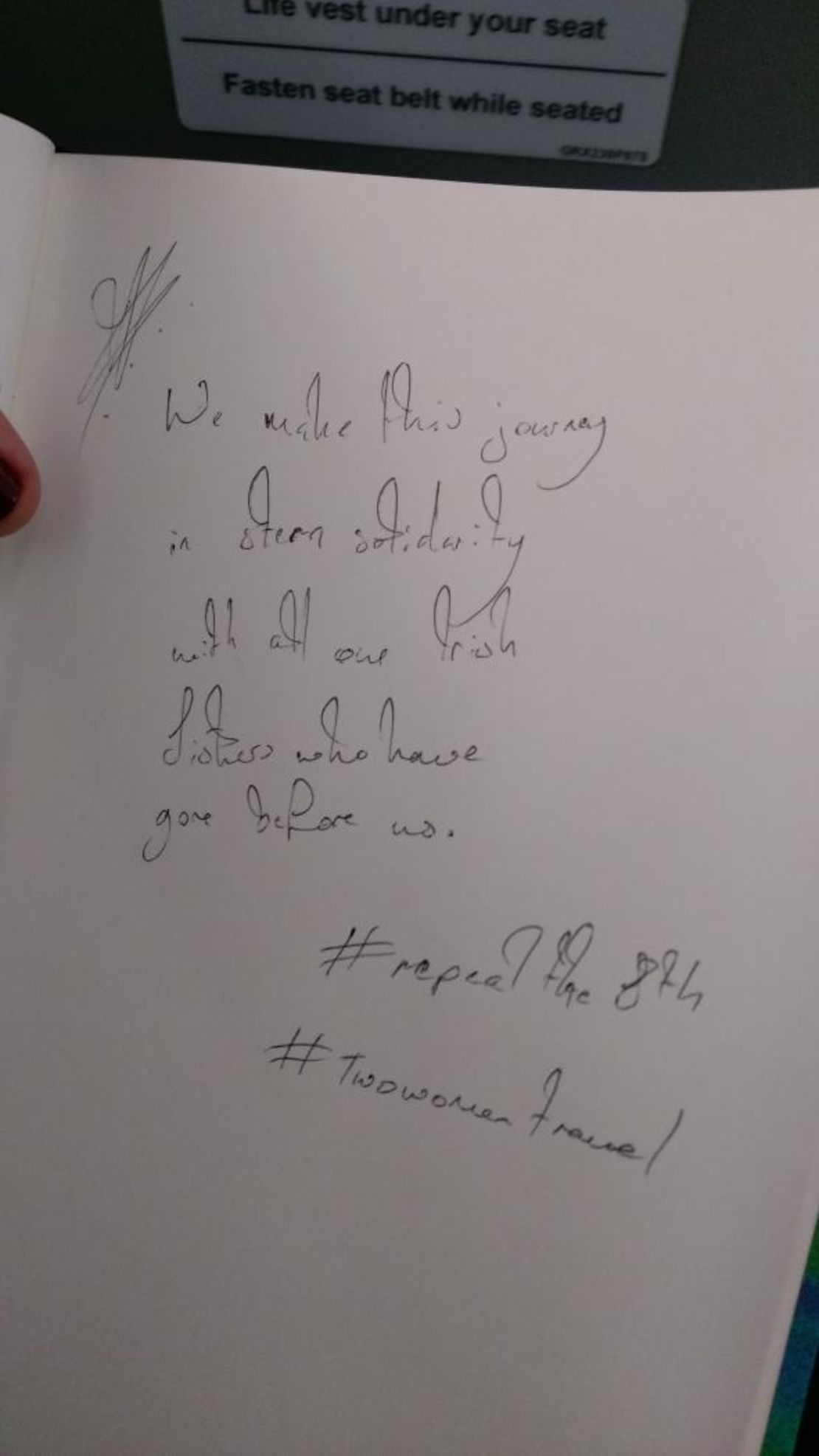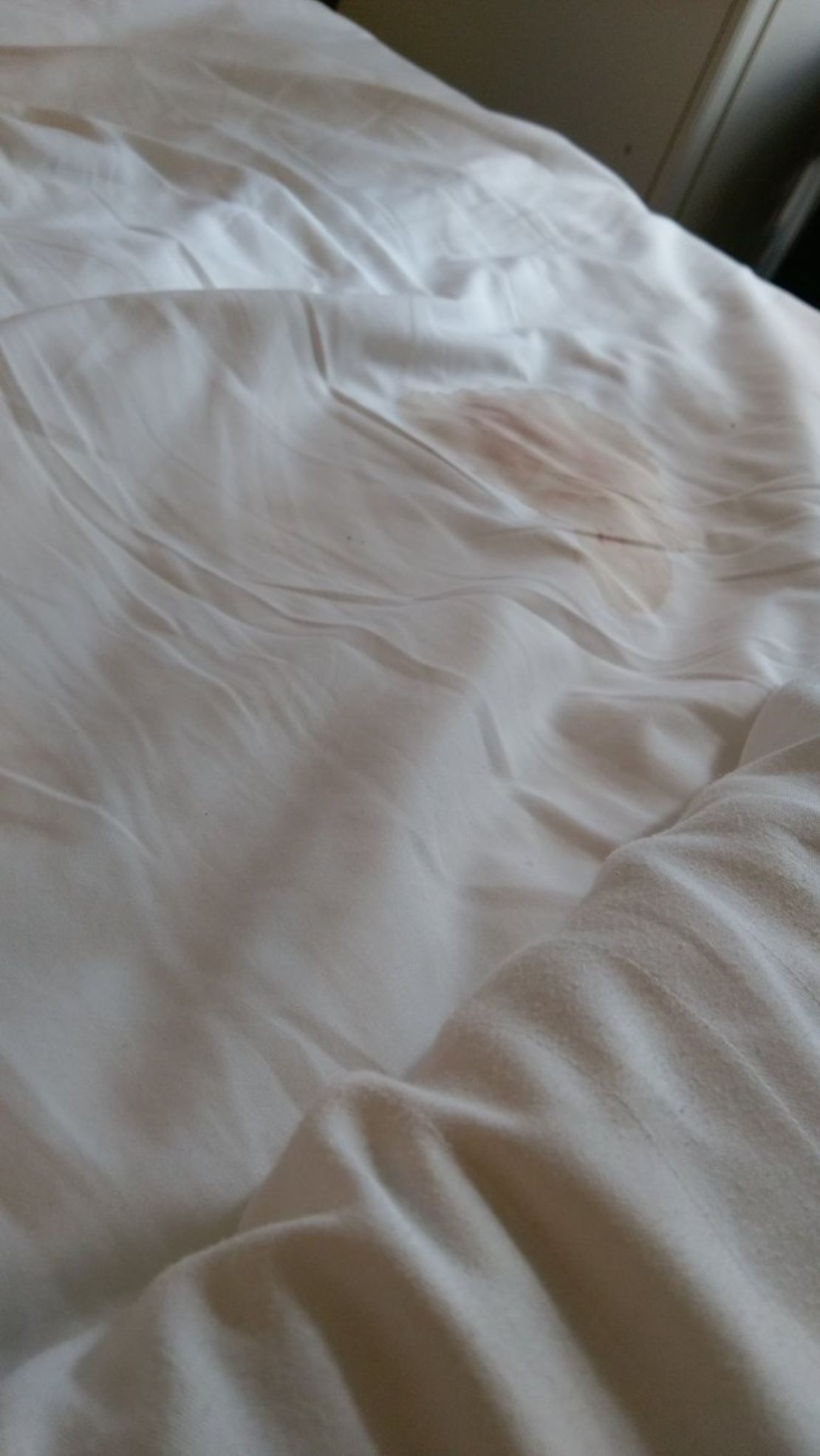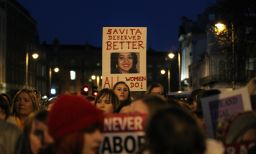Story highlights
Abortion is illegal except in certain circumstances in the Republic of Ireland
Thousands travel to UK for abortions every year, and there have been calls for a referendum to change law
An Irish woman live-tweeted her journey to the United Kingdom to have an abortion this weekend. The woman, and a friend who accompanied her, began posting early Saturday morning from the Twitter account Two Women Travel.
Abortion is illegal in the Republic of Ireland, except in certain circumstances, and more than 165,000 women traveled from Ireland to Great Britain for the procedure between 1980 and 2015, according to the United Kingdom’s Department of Health.
The pair described their mission as “Two women, one procedure, 48 hours away from home.”
Most of the tweets were directed at Irish Prime Minister Enda Kenny, with an early morning post from Dublin Airport reading “boarding, it’s chilly, @EndaKennyTD.”
Quickly, the account began to pick up traction, helped by high-profile tweeters like James Corden, a British comedian and CBS late-night host. “Today, @TwoWomenTravel but you’re not on your own in this. So many people are with you. X,” he wrote.
Later, the women posted updates from the waiting room of the clinic providing the procedure. The companion tweeted in late afternoon, “Friend is out and safe. Procedure was quick and staff very warm.”

Perhaps the most stark tweet came on Sunday morning, a picture from a hotel room of a bloodied sheet, tweeted with the words, “Not the first or the last bleeding women about to face a long treck (sic) home @EndaKennyTD #twowomentravel.”

Although the Irish Prime Minister had not responded to the tweets as of Sunday, the country’s health minister tweeted his thanks to the women “for telling the story of [the] reality which faces many.”
Strict laws

Ireland’s strict anti-abortion laws came under renewed scrutiny in 2012, when Savita Halappanavar, 31, died after being refused an abortion. An inquest into her death was told her life could have been saved had a termination been carried out a day or two before her miscarriage.
A 1983 referendum in the country led to a constitutional amendment that recognized the “right to life of the unborn.” Many of the tweets about Two Women Travel are tagged #RepealThe8th, a reference to the amendment, the eighth to Ireland’s constitution.
The amendment also recognizes the right to life of the mother; how this should be interpreted and implemented in law has been the source of decades of debate on the island.
After the death of Halappanavar, the Irish government moved to better define the circumstances under which an abortion in the country can be performed legally. A 2013 law allows for abortion when the life of the mother is in danger, including from the risk of suicide. In the case of a risk of suicide, psychiatrists and an obstetrician must certify the risk is “real and substantial.”
In June, the United Nations Human Rights Committee called on Ireland to make “accessible procedures for pregnancy termination,” after it ruled the country’s laws subjected a woman to cruel, inhuman and degrading treatment.
The finding came after the committee considered a complaint by Amanda Mellet, a duel citizen of Ireland and the United States, who was told in the 21st week of pregnancy that her fetus had defects that meant it would die in the womb or shortly after birth.
This meant she had to choose “between continuing her nonviable pregnancy or traveling to another country while carrying a dying fetus, at personal expense and separated from the support of her family,” the committee said.
Thousands travel
The woman who tweeted about her abortion on Saturday is one of thousands of women who travel across the Irish Sea every year seeking the procedure. Figures from the United Kingdom’s Department of Health show that 3,451 Irish women traveled to England and Wales in 2015 for the procedure.
Although abortion is legal in England, Scotland and Wales, the laws in Northern Ireland, also a part of the United Kingdom, are far more restrictive. In April, a woman there who induced an abortion was given a three-month suspended prison term.
Colm O’Gorman, the executive director of Amnesty International in Ireland, praised the women behind Two Women Travel for speaking out against laws that “criminalize and brutalize women.”
O’Gorman said more women are sharing their experiences to highlight the issue. Irish actress Tara Flynn spoke in 2015 of her decision to have an abortion in 2006, traveling to Holland for the procedure.
“The decision to travel was not a difficult one. I was 37, single, and both work and income were scarce,” she wrote in The Irish Times.
Flynn told CNN on Sunday she felt like she had traveled with the two women as they tweeted throughout the weekend.
“It is such an isolating journey. The selflessness of these two women means that people stopped theorizing, traveled symbolically with them, and faced, head on, the reality: the eighth amendment doesn’t stop women in crisis accessing abortion, it simply makes it less safe,” Flynn said.
Róisín Ingle, an editor with the Irish Times and a producer of the paper’s “The Women’s Podcast,” last year wrote of her experience of traveling to Britain to have an abortion. She said she wanted to thank the two women who shared their experience on Twitter.
“What I want to say to the women is thank you. Thank you for shining light on the journey thousands upon thousands of Irish women, including myself, have been forced to make. Thank you for showing us the grim details from the gray clouds as you boarded the plane to the bloodstains on bedsheets that were not your own. Thank you for telling us of the other Irish women in the waiting room. Good women. Strong women. Not criminals,” she wrote in an email to CNN.
National debate
Cora Sherlock, a spokeswoman for the anti-abortion group “Pro Life Campaign Ireland,” told CNN on Sunday the people of Ireland should be very proud of the amendment.
“People should be proud of the constitutional protection we give to unborn human beings. It is unique in the world. It stands as a beacon of human rights protection,” she said.
Sherlock expressed her dismay at celebrities and others tweeting their support for #TwoWomenTravel. “It’s very regrettable that some celebrities from around the world and other people got on board yesterday to get involved in supporting and talking about a procedure that ultimately ends human life.”
Calls for a vote
Laws on social issues in Ireland, traditionally seen as a conservative Catholic country, are changing. Divorce was illegal in the country until the law was changed in 1996, homosexuality was decriminalized in 1993, and in 2015 Ireland became the first country in the world to legalize same-sex marriage through popular vote.
A national opinion poll in January found that a majority of people believed that Irish abortion laws need to be revised, but only 41% said abortion should be available in any circumstance felt necessary by the mother.
Abortion rights campaigners have called for a referendum to repeal Ireland’s amendment. Campaigners like Sherlock, however, say Irish laws protect lives and shouldn’t be changed. In May, her campaign released a video celebrating Irish law.
Last year, Amnesty International launched a campaign to change Ireland’s abortion laws. Part of the campaign is a Liam Neeson-narrated video that speaks of a “cruel ghost” of the last century that haunts Ireland, “a spirit that lives in the constitution, written for a different time.”
Amnesty’s O’Gorman confirmed Irish media reports that his organization will receive $137,000 from George Soros’ Open Society Foundation over 2016 and 2017. Sherlock described news of the funding as “extremely disturbing.”

